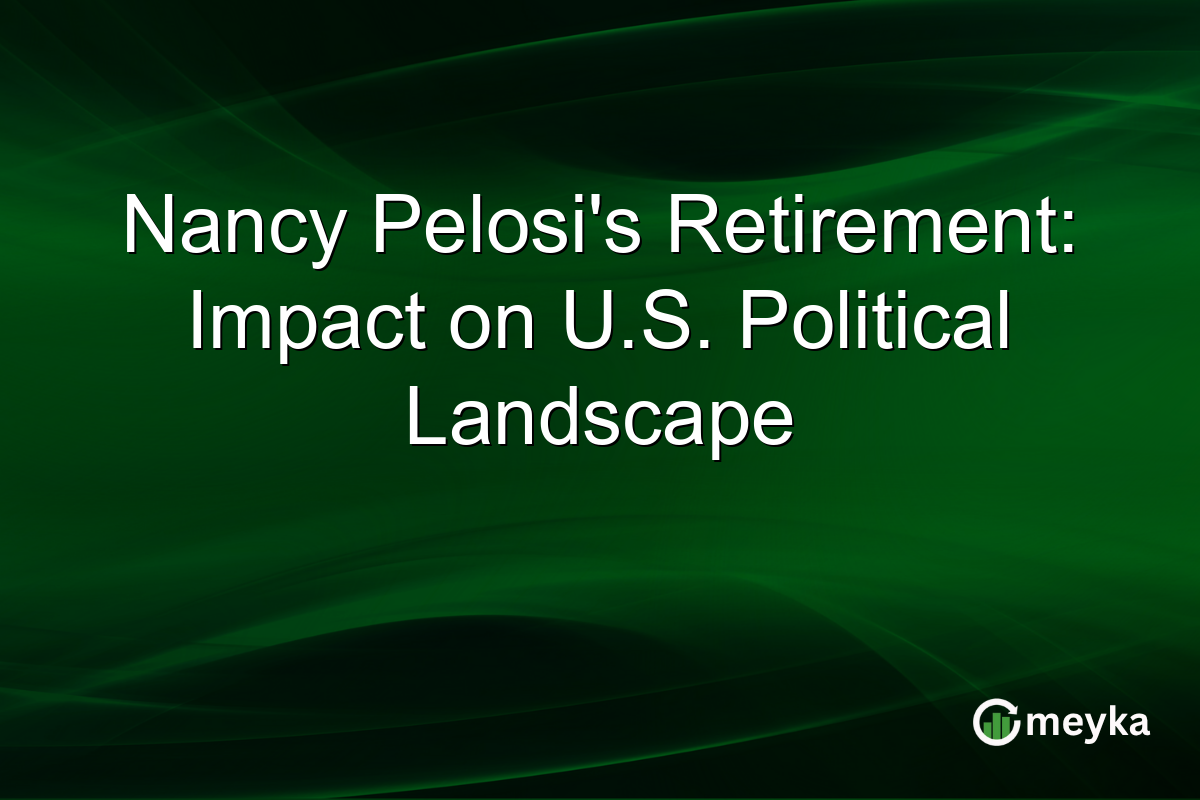Nancy Pelosi’s Retirement: Impact on U.S. Political Landscape
Nancy Pelosi, one of the most influential figures in U.S. politics, has announced her retirement. As a pivotal leader in the Democratic Party, her decision not to seek reelection marks a substantial shift in the political landscape. This move could impact party dynamics and future legislative priorities. Her leadership style and policy focus have strongly influenced congressional proceedings. As we examine the implications of her retirement, we consider who may fill her shoes and how the political future might unfold.
Continue Reading on Meyka
This article is available in full on our main platform. Get access to complete analysis, stock insights, and more.
Read Full Article →





